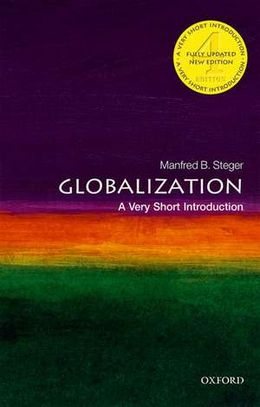Am bătut toată Europa la creşterea salariului minim, am ajuns tot la coada ei din cauza taxării. Cât câştigi, minimum, dacă pleci afară
România a avut cea mai mare rată de creştere a salariului minim dintre ţările UE care impun o astfel de măsură. Dar România rămâne în top la taxarea salariului minim ceea ce face ca, în ciuda creşterilor repetate, să fim tot în coada Europei la câştigul minim cu care un angajat pleacă acasă, arată raportul anual 2019 al Eurofond. Câştigul asigurat de salariul minim din ţările preferate de Români când pleacă la muncă este incomparabil mai mare.
04 sep, 2019 | Ionuţ Tudorică | ECONOMICA.net
România conduce în UE la creşterea salariului minim între 2010 şi 2019, cu un procent de 180%, mult peste cele mai mari creşteri, care au fost înregistrate în acest interval de Bulgaria (114%), respectiv Lituania (104%), arată raportul anual 2019 asupra salariilor minime din UE, întocmit de Eurofond.
Transformat în euro, salariul minim brut din România a ajuns anul acesta la 446 de euro, iar Eurofond i-a calculat o creştere reală de 5,97% faţă de 2018. Sub această sumă se mai află doar salariile minime din Letonia (430 euro) şi din Bulgaria (286,33 euro).
Aici aveţi o listă cu salariile minime brute în UE, calculate în euro, şi creşterea reală faţă de anul trecut:
Belgia €1,593.76 +0.16%
Bulgaria €286.33 +7.39%
Croatia €505.90 +8.42%
Cehia €518.97 +7.24%
Estonia €540.00 +4.98%
Franţa €1,521.22 +0.10%
Germania €1,557.09 +2.19%
Grecia €758.33 +10.35%
Ungaria €464.20 +4.95%
Irlanda €1,656.20 +1.80%
Letonia €430.00 -2.90%
Lituania €555.00 +36.53%
Luxemburg €2,071.10 +1.97%
Malta €761.97 +0.91%
Olanda €1,615.80 +0.35%
Polonia €523.09 +6.39%
Portugalia €700.00 +2.83%
România €446.02 +5.97%
Slovacia €520.00 +5.95%
Slovenia €886.63 +3.94%
Spania €1,050.00 +21.08%
Marea Britanie €1,746.73 +2.38%
Cu o singură excepţie, Letonia, care a păstrat neschimbat salariul nominal, dar a scăzut real, salariile minime au crescut peste tot în UE, aşadar România se înscrie în trendul comunitar.
Însă şi preţurile de consum tind să crească peste tot în UE, observă raportul, care subliniază că nu peste tot creşterile nominale s-au sinţit şi în buzunarele angajaţilor. Şi scoate în evidenţă din nou cazul României, care a avut cea mai mare rată a inflaţiei din UE (3,2% în raport).
România are cea mai mare taxare pe salariul minim din UE. Rezultatul: câştigul net minim e cel mai mic din UE, afară de Bulgaria
Apoi, raportul european plasează România în vârful celor mai taxate salarii minime din UE. Doar Lituania ne depăşeşte, cu o sarcină fiscală de 39,5% pe salariul minim brut. Dar ne depăşeşte doar marginal, pentru că aici, impozitarea totală este de 39,28%.
După taxarea salariului, ajungem la cel mai mic salariu minim net din UE, mai jos, dar nu departe, fiind doar Bulgaria.
Cu câţi bani rămâi într-un an
Astfel, într-un an, un român care e plătit cu salariul minim pe economie, duce acasă 3.252 de euro, iar un bulgar 2.902 euro, fiind singurii care câştigă mai puţin.
În ţările preferate de români pentru migrare lucrurile stau mult diferit. Un salariu minim în Marea Britanie, de exemplu, îţi asigură anual circa 18.200 de euro în mână. În Germania, 13.800 de euro. În Italia, care n-are un salariu minim pe economie, dar e calculat pe baza contractelor colective, 16.700 de euro. În Spania, 11.573 euro. În Suedia, 15.912 euro.
Aveţi mai sus un grafic care arată salariile minime brute anuale, pe cele nete şi nivelul de taxare a salariului minim.

I have first discovered Manfred B. Steger as a researcher on the „global imaginary" when analyzing cultural and media flows around the world, a couple of years ago. Ever since, I wanted to read more of his work on globalization and what this imaginary entails: considering oneself the citizen of the world, identifying more with certain universal values than with a national identity, buying into consumerism and mass culture etc. So, some time ago, the moment came. I could now read all about it, in a concise manner: Globalization. A very short introduction. Short, but intense, with all the right nuances, as it is very difficult to pinpoint what globalization is and isn’t, where it all began and so on.
This guide is an overview, taking into account different timelines for globalization going back to the first hunter-gatherers in our species and the rise of civilizations (and empires), although as a concept, it is a modern one. And, then, highlighting 5 dimensions that one can extract when trying to analyze global entities, flows, structures, influences, resources, territories etc. These dimensions are of course: economic, political, cultural, ecological and ideological.
But first, the main operative definitions, as Steger suggests: The often-repeated truism that globalization (the process) leads to more globalization (the condition) does not allow us to draw meaningful analytical distinctions between causes and effects. / Hence I suggest that we adopt three different but related terms. First, globality signifies a social condition characterized by tight global economic, political, cultural, and environmental interconnections and flows that make most of the currently existing borders and boundaries irrelevant. (…) Second, let us adopt global imaginary to refer to people’s growing consciousness of thickening globality. (…) The intensification of global consciousness destabilizes and unsettles the nation-state framework within which people have imagined their communal existence. (…) Finally, globalization is a spatial concept signifying a set of social processes that transform our present social condition of conventional nationality into one of globality.
What isn’t global then? If we consider the cultural dimension, than the influences and „migration" of writing, for instance, or the wheel (both around 3500-3000 BCE), than we have been global since we started creating settlements. The digital has only made it more visible and accelerated in terms of cultures influencing one another into adopting objects, behaviours etc. But things get complicated when the two main „ideologies" clash – the nation-state and the global. Both imagined at various times in history (see Benedict Anderson’s take on nations as imagined communities, a theory from the '80s), they entail different ways of conducting economics and politics. Steger highlights here great examples like the establishment of the International Monetary Fund after WWII or the rise of the EU, while also addressing inequalities, the US economic crisis in 2008 or the Chinese economic crisis in 2016.
Also, when addressing the ecological and the ideological dimensions, Steger navigates the contradictions in terms of working together for global safety (climate change, pollution etc.) versus transnational corporations, the free market globalism and consumerism.
With a lot of facts and charts, Steger’s Globalization is a powerful read, as it remains neutral while critiquing what forces shaped the world as we know it today, the dominant discourses of capitalism, globalism(s) and the nation-state framework, making it a compulsory guide if you want to better understand why extremist frameworks are on the rise or why economic bubbles and crises are the norm.
Did you know that the ice that melted in the last 20 years is more than the one melted in the previous 10000 years for instance? Or that the EU began in 1957 and Romania and Bulgaria adhered in 2007, exactly 50 years later? Or that Apple’s market value in 2015 was 725 billion $, more than Turkey’s GDP (722 billion $)? Or that 48,2% internet users in 2015 are from Asia? Really puts things in perspective. It’s numbers and the dominant narratives various „institutions" (states, regional political entities, corporations, international NGOs, terrorists, religious movements etc.) create to further their individual agenda, and then there’s migration, ecology and culture that represent the shapes and consequences on both a macro and micro level involvement. Steger is very good at pointing the macro lens for the reader to better grasp the difficult power relations and global flows of an interconnected world, with its „good" and „bad".
All in all, this guide is very well written and structured, with clear examples to pinpoint more abstract terms or ideologies, while never trying to simplify the narrative. I really appreciated his research and balanced tone while addressing humanitarian crises, historical issues, geopolitical blunders and so on. And, once again, I urge you all to read it, as a basic understanding of what globalization is, was and can be, further on.
Categorie: Psihologie/Sociologie, Eseuri | Autor: Manfred B. Steger | Editura: Oxford University Press



 Ecuația lui Schrödinger, pe mormântul său din Alpbach.
Ecuația lui Schrödinger, pe mormântul său din Alpbach. și energie {\displaystyle E}
și energie {\displaystyle E} bine determinate i se asociază o undă plană de forma
bine determinate i se asociază o undă plană de forma
 e
e 
 e energia potențială (constantă pentru o particulă liberă); hamiltonianul este o constantă a mișcării, cu o valoare egală cu energia {\displaystyle E\,}
e energia potențială (constantă pentru o particulă liberă); hamiltonianul este o constantă a mișcării, cu o valoare egală cu energia {\displaystyle E\,} . Forma generală a undei asociate unei particule libere este o suprapunere liniară de unde De Broglie, cu toate valorile posibile ale impulsului și energiei (principiul superpoziției), deci ecuația de undă trebuie să fie liniară. Dată starea particulei la un moment inițial, starea ei la un moment ulterior trebuie să fie univoc determinată, deci ecuația de undă trebuie să fie de ordinul întâi în timp. Cu aceste puncte de plecare, un calcul direct de derivate, urmat de eliminarea parametrilor {\displaystyle \mathbf {p} }
. Forma generală a undei asociate unei particule libere este o suprapunere liniară de unde De Broglie, cu toate valorile posibile ale impulsului și energiei (principiul superpoziției), deci ecuația de undă trebuie să fie liniară. Dată starea particulei la un moment inițial, starea ei la un moment ulterior trebuie să fie univoc determinată, deci ecuația de undă trebuie să fie de ordinul întâi în timp. Cu aceste puncte de plecare, un calcul direct de derivate, urmat de eliminarea parametrilor {\displaystyle \mathbf {p} }
 este operatorul
este operatorul  este valabilă și pentru o particulă într-un câmp de forță, când energia potențială depinde de poziție și chiar de timp: {\displaystyle V=V\left(\mathbf {x} ,t\right)}
este valabilă și pentru o particulă într-un câmp de forță, când energia potențială depinde de poziție și chiar de timp: {\displaystyle V=V\left(\mathbf {x} ,t\right)} . Se observă că această ecuație se obține din hamiltonianul clasic înlocuind formal impulsul și energia prin
. Se observă că această ecuație se obține din hamiltonianul clasic înlocuind formal impulsul și energia prin 






 din spațiul configurațiilor și utilizând
din spațiul configurațiilor și utilizând 
 e suprafața închisă care delimitează volumul {\displaystyle {\mathcal {V}}}
e suprafața închisă care delimitează volumul {\displaystyle {\mathcal {V}}} există, iar din ecuația de continuitate rezultă că e constantă în timp. Cum ecuația lui Schrödinger e liniară și omogenă, ea definește funcția de undă numai până la o constantă multiplicativă, a cărei valoare se fixează prin condiția de normare
există, iar din ecuația de continuitate rezultă că e constantă în timp. Cum ecuația lui Schrödinger e liniară și omogenă, ea definește funcția de undă numai până la o constantă multiplicativă, a cărei valoare se fixează prin condiția de normare

 , în jurul punctului de coordonate {\displaystyle \mathbf {x} }
, în jurul punctului de coordonate {\displaystyle \mathbf {x} } și la momentul {\displaystyle t\,}
și la momentul {\displaystyle t\,} . Mărimile {\displaystyle {\mathcal {P}}}
. Mărimile {\displaystyle {\mathcal {P}}} și {\displaystyle \mathbf {J} }
și {\displaystyle \mathbf {J} } sunt densitatea de probabilitate și densitatea curentului de probabilitate de localizare, iar condiția de normare la unitate exprimă certitudinea că particula se află, la orice moment, într-un punct din spațiu. Această interpretare se sprijină pe analiza experimentelor de
sunt densitatea de probabilitate și densitatea curentului de probabilitate de localizare, iar condiția de normare la unitate exprimă certitudinea că particula se află, la orice moment, într-un punct din spațiu. Această interpretare se sprijină pe analiza experimentelor de 


 particule depinde de coordonatele acestora în spațiul configurațiilor:
particule depinde de coordonatele acestora în spațiul configurațiilor:
 , unde hamiltonianul se obține sumând energiile cinetice ale particulelor (de mase {\displaystyle m_{1},...,m_{n}}
, unde hamiltonianul se obține sumând energiile cinetice ale particulelor (de mase {\displaystyle m_{1},...,m_{n}} ), plus energia potențială de interacțiune, dependentă de coordonatele acestora (iar în cazul stărilor nestaționare și de timp):
), plus energia potențială de interacțiune, dependentă de coordonatele acestora (iar în cazul stărilor nestaționare și de timp):


